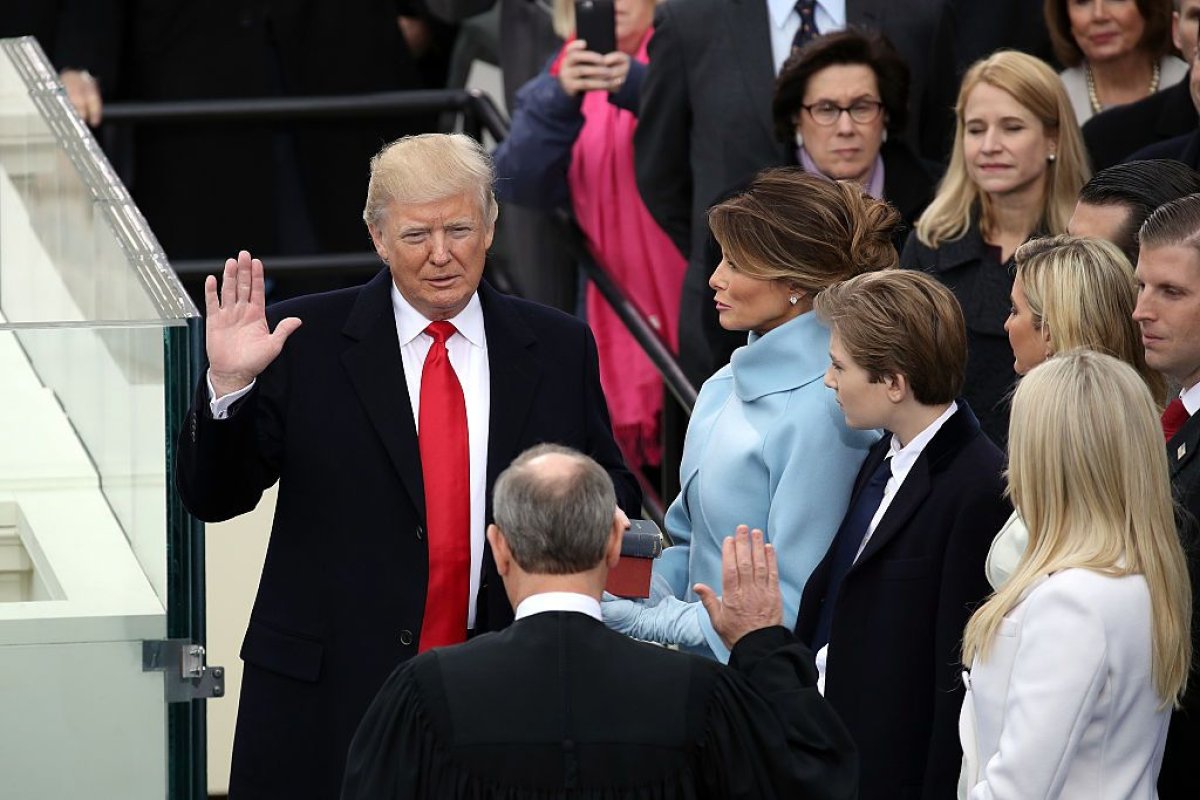This originally appeared on CT Viewpoints.
The debate over a proposed compact in which Connecticut would cast its seven electoral votes to the winner of the national popular vote is missing the forest through the trees. The problem isn't that presidents win despite the popular vote. The problem is that presidents win despite not winning a majorities in the states. That may seem like a distinction without a difference, but it's not.
Popular vote proponents say the compact will democratize how Americans choose presidents. When enough states join, presidents would then be decided by the popular vote, not the Electoral College. At the moment, whoever exceeds 270 electoral votes wins the election even if the candidate loses the popular vote. This was the case with George W. Bush and Donald Trump.

Testifying last week in the state Senate, the head of the nonprofit National Popular Vote said Connecticut should join the 11 states already in the compact. Barry Fadem said it would drive up voter participation, bring more candidates to the state, and reduce the influence of two or three "battleground states."
Tara Ross disagreed. An author of numerous books about the history of the Electoral College, she told a senate panel that the institution encourages "coalition building," because candidates can't just rely on big coastal cities to win the White House. A GOP senator added: "It's amazing how the electoral college has performed and outperformed as our country has grown."
But all of the above is beside the point. The problem is deeper than the Electoral College versus the popular vote. The problem is about majorities versus minorities, and neither side of the current debate is offering solutions.
Ross's comment about "coalition building" is right but contrary to the spirit of democracy. The Electoral College was, is and always will be a safeguard for low-population farming states against high-population urban states. That coalition has been the same for ages, with the addition of battleground states.
Fadem is right, and wrong. The compact will reduce the influence of current battleground states, but not battleground states in general. Instead of Florida and Ohio, they might be other states. Politics will remain a game of margins, even with the popular vote in place. You're still going to see red states versus blue, with purple states swinging one way or the other from year to year.
The real problem is that our election system currently allows something that shouldn't happen in a representative democracy. Candidates don't need majorities to win. Trump won 101 electoral votes in states where he did not win 50 percent of those state's voters. In Michigan, for instance, Trump won 47.3 percent of the popular vote while three other candidates split the balance. Those three were Hillary Clinton, Gary Johnson and Jill Stein.
So even if Connecticut joins the compact, the system will still allow candidates who did not win majorities to win the presidency. That puts debate over the populate vote in a different light. The solution is not a compact between states, but laws within states that do not require cooperation between them.
Instead of this six of one, half a dozen of the other solution, Connecticut should instead debate implementing something called ranked-choice voting (often called "instant runoff.") In this way, voters rank candidates in order of preference so that one candidate always wins at least 50 percent of the vote.
Rank-choice voting in a majority of states would solve the current problem of the Electoral College's running rough-shod over the national popular vote, because the majority of each state in that electoral count would be represented.
None of this is to say the national popular vote compact will hurt. It won't. Connecticut's House already passed the measure in 2009, and the Senate appears to be poised to follow suit. But it won't solve the problem. It will just create a different set of problems in search of the same solution.
John Stoehr is a lecturer in political science at Yale, a business columnist for Hearst Connecticut Media, an essayist for the New Haven Register and a U.S. News & World Report contributing editor.
Uncommon Knowledge
Newsweek is committed to challenging conventional wisdom and finding connections in the search for common ground.
Newsweek is committed to challenging conventional wisdom and finding connections in the search for common ground.





